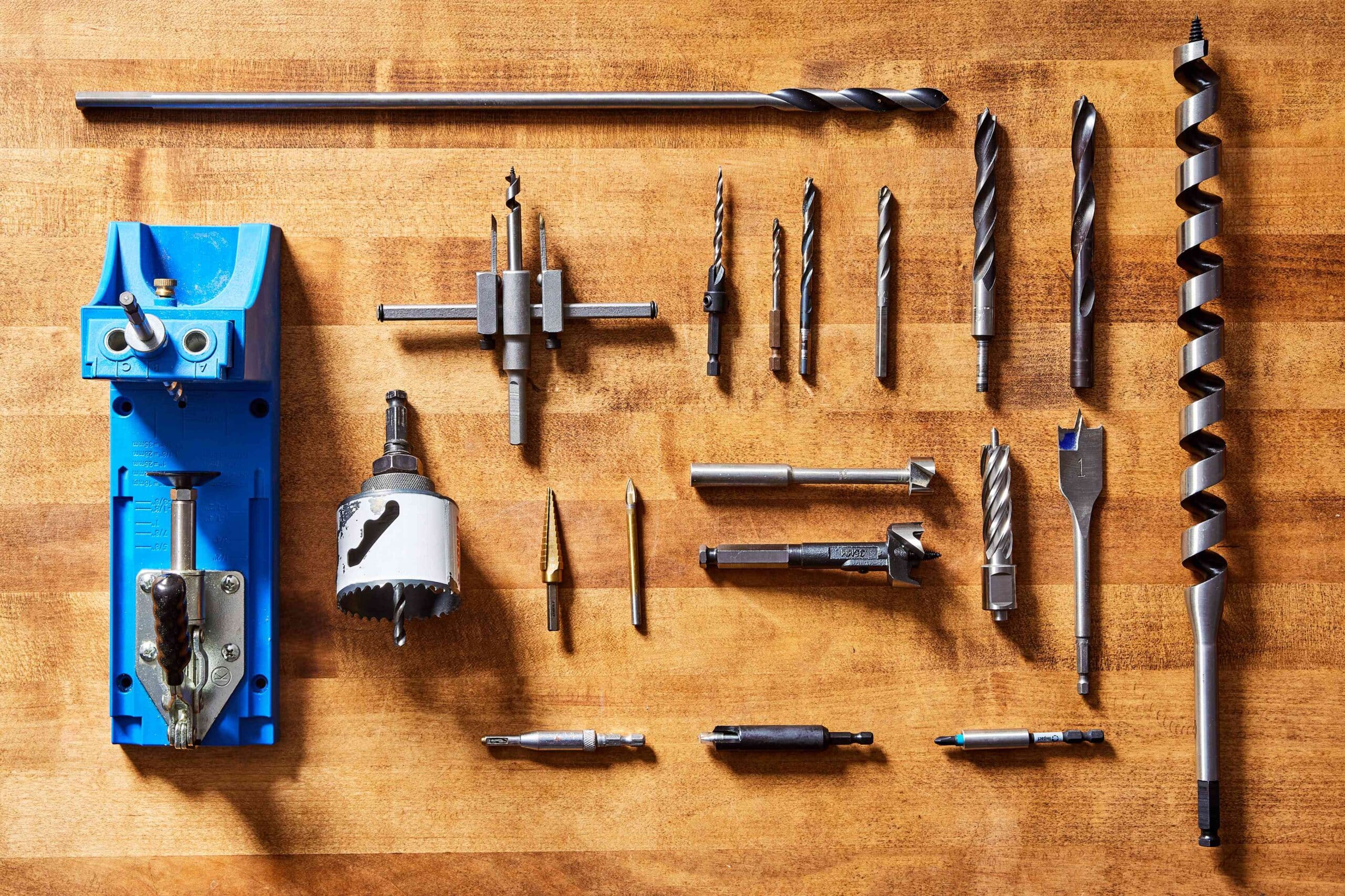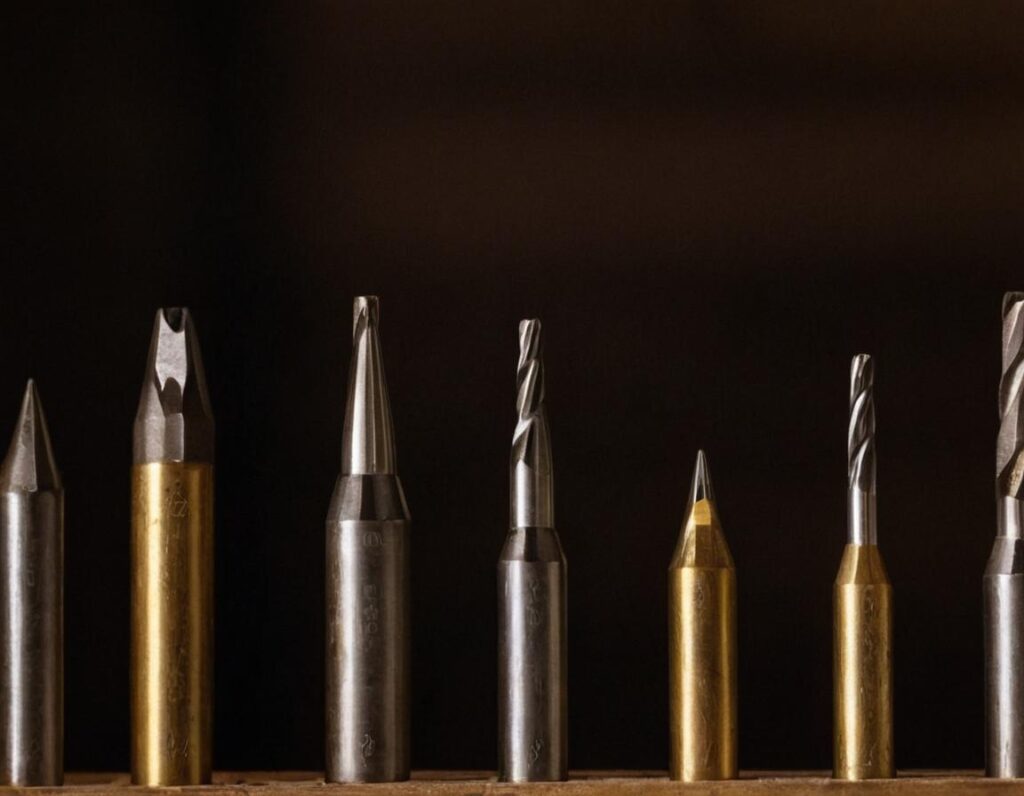Choosing the right drill bit can be the difference between a smooth project and one filled with frustration. With so many options available, it’s easy to feel overwhelmed—each bit is designed for specific materials, tasks, and tools.
Using the wrong drill bit can cause damage, delay your work, or even lead to safety hazards. This blog will guide you through the key factors to consider when selecting drill bits.
1. Understand Your Material
The use of specific types of drill bits is necessary when working with various materials such as wood, metal, concrete, or plastic. For wood, a spade or twist bit works best. For metal, high-speed steel (HSS) bits are ideal, while masonry bits are needed for concrete.
If you use the wrong drill bit, you might end up with poor results and even cause damage to the material. Before selecting a drill bit, it is imperative that you first determine the density and hardness of the material.
For example, softwood doesn’t need a heavy-duty bit, while stainless steel requires a stronger, more durable one. Knowing your material will help you avoid choosing a bit that wears out quickly or doesn’t perform well.
2. Choose the Correct Drill Bit Type
Since there are many different kinds of drill bits, each of which is designed for a specific kind of work, selecting the appropriate kind is essential. Drilling in wood, metal, or plastic can be accomplished with a twist drill bit, which is the most common type of drill bit.
For specific tasks, such as drilling into masonry, a masonry bit with a carbide tip is ideal. If you’re drilling into metal, cobalt or titanium-coated drill bits are better for increased durability.
For wood, flat or spade bits are commonly used. Selecting the correct type ensures better performance and prevents damaging the workpiece or drill bit.
3. Select the Appropriate Size
If the bit is too small, it will not be able to create the desired hole size, and if it is too large, it may cause the material to become more fragile. Measure the diameter of the hole you need and select a drill bit that matches.
It’s also essential to consider the depth of the hole you’re drilling. Some drill bits, like auger bits, are designed for deep holes, while others are better for shallow ones.
Always have a set of bits in different sizes, so you can adjust them depending on your needs. Proper sizing ensures precise results and avoids damaging the material.
4. Consider the Drill Bit Coating
It is possible to increase the drill bit is durability and resistance to wear by applying coatings such as titanium, carbide, or black oxide. For example, titanium-coated bits last longer and can handle higher temperatures, making them suitable for metal drilling.
A carbide coating is often used for drilling through hard materials like concrete. If you’re working with abrasive materials, like tiles or stone, a drill bit with a specialized coating will perform better and stay sharp for longer.
Consider the coating that matches your material and drilling conditions for improved results and longevity.
5. Match the Drill Bit to the Drill Machine

Not all drill bits are compatible with every type of drill machine. Before purchasing a drill bit, ensure it’s compatible with your drill’s chuck size and power.
For example, if you have a cordless drill, make sure the drill bit shank fits properly in the chuck. There are drill bits with round, hex, or SDS shanks, so make sure the one you choose works with your tool.
Also, if you’re using a drill press or hammer drill, ensure the drill bit can withstand higher speeds or impact. Matching the drill bit to your machine helps improve drilling accuracy and prevents damage to both the bit and the drill.
6. Check for Sharpness and Quality
A dull drill bit can ruin your work and make the drilling process much harder. Always check the sharpness of the drill bit before use. Sharp bits make cleaner holes and require less effort to use.
When buying drill bits, check the material quality and the manufacturing process to ensure you’re getting a high-performance bit. High-quality drill bits are made from materials like high-speed steel or carbide, which offer better sharpness retention.
Avoid cheap bits that may break or dull quickly, as they could end up costing more in the long run due to replacement and inefficiency. A sharp, high-quality bit saves time and provides cleaner results.
7. Evaluate the Cost and Durability
While it’s tempting to go for cheaper drill bits, they may not last as long and could affect your work quality. It’s important to balance cost with durability when choosing drill bits.
Higher-quality bits made from durable materials like cobalt or carbide may cost more initially but can save you money over time by lasting longer and performing better.
If you plan to do heavy-duty drilling, investing in more expensive, long-lasting bits is worthwhile. For lighter, occasional tasks, budget-friendly bits may suffice.
Ensure Smooth, Efficient, and Precise Drilling
Ensuring smooth, efficient, and precise drilling starts with selecting the right drill bit for the task at hand. Don’t compromise on quality—investing in the right drill bit is key to getting the job done efficiently. For those looking to make a purchase, you can easily buy drill bits in Australia and get started on your next project with confidence.

















